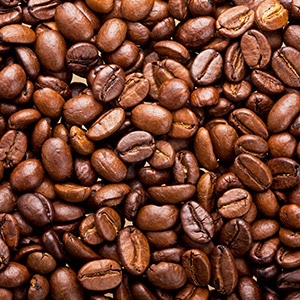
Organic Coffee
— April 29, 2015Coffee is the second most popular drink on the planet. It ranks just behind water. In terms of its production and labeling, it is perhaps more like wine. There are rules regarding how it is categorized and labeled, there are controversies over what tastes better, and there is a wide range in how well its production is supervised. Chemical fertilizers and pesticides are widely and frequently used in its production. In many parts of the coffee-producing world the chemicals, banned in many nations, are employed without any serious supervision.
In the United States the Dept. of Agriculture sets standards that must be met if a product is to be labeled “organic.” Coffee must have been produced without the use of synthetic substances such as pesticides, fertilizers, and herbicides. 95% of the coffee beans must be produced under organic conditions.
Most coffee is harvested by hand. It is a difficult crop to grow and maintain. Coffee Arabica comprises about 70 per cent of coffee beans produced today. The plants are finicky growing best at higher altitudes, shaded sunlight, fairly constant temperatures, and adequate rain.
Another species, Coffee Robusta is hardier than Arabica growing at lower altitudes and being more tolerant of sunlight. This means that it is not as dependent on the canopy of trees that provides the partial shade so desirable for Arabica plants. Robusta beans are smaller, bitterer, and contain about 50% more caffeine than Arabica beans.
Three years is required before coffee shrubs become productive, and another year for the coffee cherries to mature after the white blossoms appear. The coffee cherry is the fruit of the coffee plant. Inside the cherry are two coffee beans. Several membranes, protective layers, and a thick skin protect them. One coffee shrub produces enough beans for 1 to 1.5 pounds of roasted coffee.
Can coffee production have sustainability? Since the current methods for conventional production of coffee are ultimately destructive to the environment then of course not. Should there, then, be more organic coffee farming? This would help but it is not the total answer. Fair Trade practices and certification is not the complete answer either. According to Intelligentsia truly sustainable coffee production requires “a mutual investment of energy and the idea of creating strategies together as partners in the pursuit of better quality, better return, and long-term viability.” Each link in in the chain of players in getting a good cup of coffee from the field to the consumer is important. When all work in harmony with full transparency, it can be called a “sustainable business.”
There are many sources for organic coffee and teas. Some may have a coffee roaster that they patronize in their neighborhood. Others may find sources on line. Freshness can be an issue, so best order your beans, grind them as you use them, and store them properly. An excellent on-line source is the organic coffee and tea boutique Ateaz. They are a full service boutique for organic tea and coffee, various supplies, and beautiful serving ware all at one stop. There are many testimonials and review articles that attest to their expertise. And, the prices are very fair! For more information visit www.Aateaz.com
Does organic taste better? Most people say yes, but that is difficult to document. What constitutes a good cup of coffee? Consumers must decide that for themselves. Can the average consumer taste the difference between organic and conventional coffee? Yes– if they take the time to relax, think about what they are drinking, and consider the circumstances under which they are having their coffee. If it is a morning cup bought on the street or when one arrives at work, it is likely more a vehicle for caffeine than a refreshing taste experience. Organic makes little difference. Saturday AM, reading the newspaper or talking with friends—go organic! It’s definitely worth it.


Leave a reply